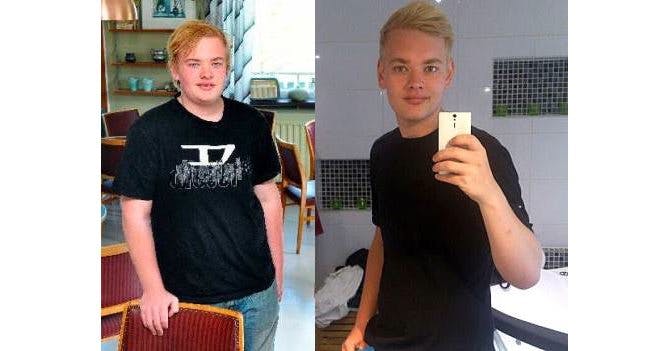Losing 100 lbs in a year with LCHF
I received an e-mail from Bengt Nilsson, who’s been on an LCHF diet for a year. Here’s what happened:
The E-mail
Hi Andreas
Thank you for your terrific website, which has inspired me a lot.
The first picture is from November 2012 and the other one was taken today.
With the help of your recommendations I’ve now reached my goal weight, 187 lbs (85 kg). I haven’t followed them to the letter, as I’ve been at 50-75 g carbs/day, but have a very large intake of “good” fats at 150-200 g per day and about the same amount of protein. Almost all carbohydrates come from vegetables, and I eat on average almost 1 kg (2 lbs) daily. I’ve enjoyed keeping a food diary (Dumbbell) and after 11 months my numbers are roughly as stated above. Around 2500-2800 kcal/day, if anyone wants to think about calories.
I do an average of 45 minutes of exercise/weight training per day.
The only extreme part of my diet is probably my egg consumption. I eat about 200 eggs a month in all forms, I never get tired of them and there’s hardly a better food.
I have a friend who is a physician and he’s done my blood work three times during this time. I have no bad health markers, on the contrary. In addition, I feel fantastic and have not been sick during these past 11 months, nor have I had any headaches or stomach pains, I’ve just simply felt great.
I will of course continue to eat like this, but will have to admit that it’s a bit sad that “the journey is over”. I’ve felt fantastic, eaten until satisfied when I was hungry, regardless of time of the day.
I’ve read the entire report from SBU (The Swedish Council on Health Technology Assessment) and I really hope it will get more attention from the media than it has so far.
Sincerely,
Bengt Nilsson
Congratulations, Bengt!
